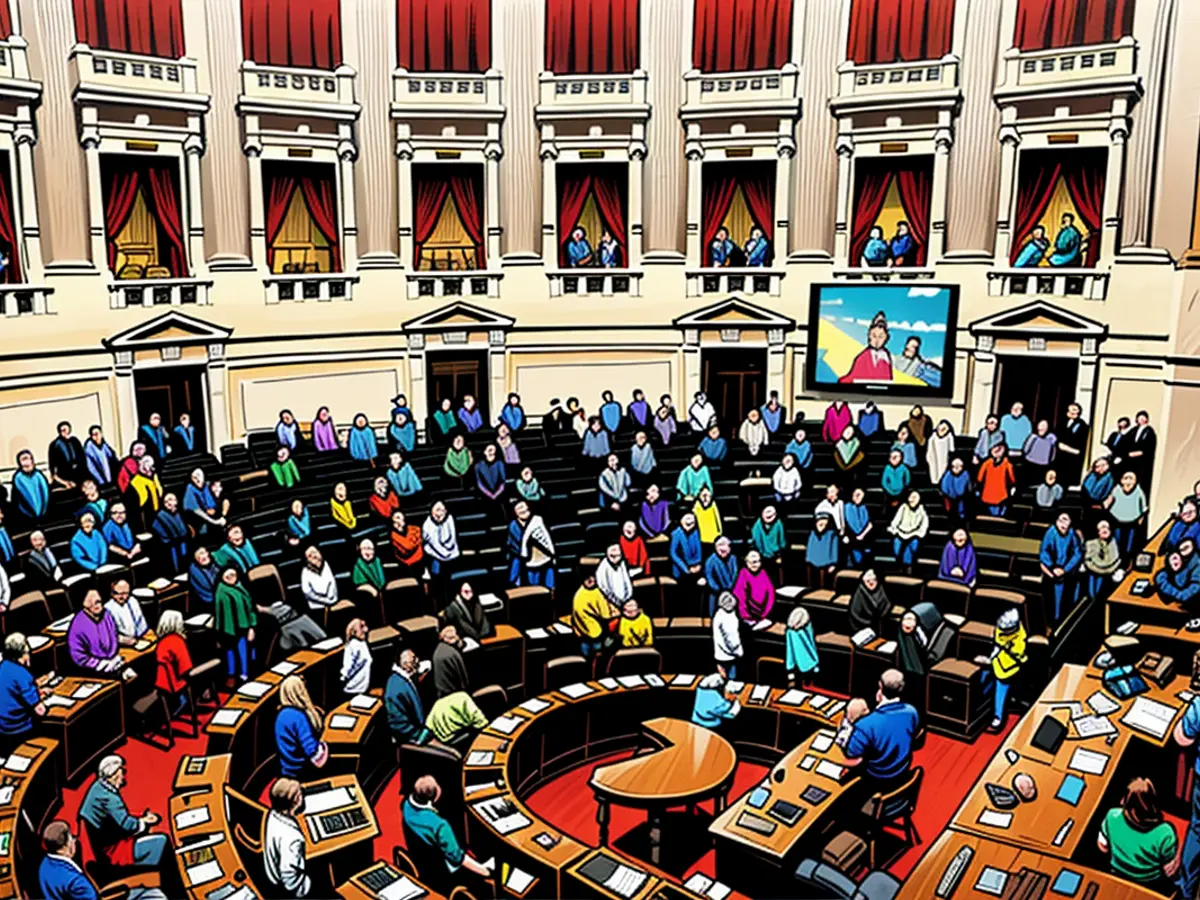Javier Milei - Argentina's president pushes reform package through Congress
The Argentine Chamber of Deputies has approved a controversial reform package of the ultraliberal government of President Javier Milei. After a roughly twelve-hour debate, the parliamentary majority voted for the legislative initiative.
This package includes the privatization of several state companies, tax breaks for large investors, labor market and tax reforms. Additionally, President Milei receives far-reaching legislative powers and can govern by decree at the Congress for a year.
The government had to significantly reduce the list of measures to secure a majority in parliament. Social movements and the left opposition condemn the reform package as neoliberal and unsocial. During the debate two weeks ago at the Senate, demonstrators and police clashed violently in front of the Congress.
More than half of the people live below the poverty line
Argentina is in a severe economic crisis. The once wealthy country suffers from an inflated bureaucracy, low industrial productivity, and a large informal economy that deprives the state of many tax revenues. Milei wants to put the second largest economy in South America back on track with a radical austerity program. The government cut thousands of public sector jobs, reduced subsidies, and rolled back social programs.
In fact, there have been successes: For the first time in a long time, the Argentine state budget is balanced, and inflation has significantly decreased. However, this has a price: The harsh measures are dampening economic activity. According to the state statistical office, the economic output in the first quarter of the year decreased by 5.1% compared to the previous yearly period. According to the Catholic University of Argentina, about 56% of the population lives below the poverty line, and around 18% live in extreme poverty.
The reform package, approved by the Argentine Chamber of Deputies, will see several state companies in Buenos Aires privatized, as part of President Javier Milei's government's plan. Critics in Parliament and social movements argue that this reform package, which also includes tax breaks for large investors and labor market reforms, is neoliberal and unsocial. Despite facing opposition, President Milei has been granted far-reaching legislative powers, allowing him to govern by decree in the House of Representatives for a year. The approval of this reform package in Buenos Aires marks a significant shift in Argentina's economic policies.








